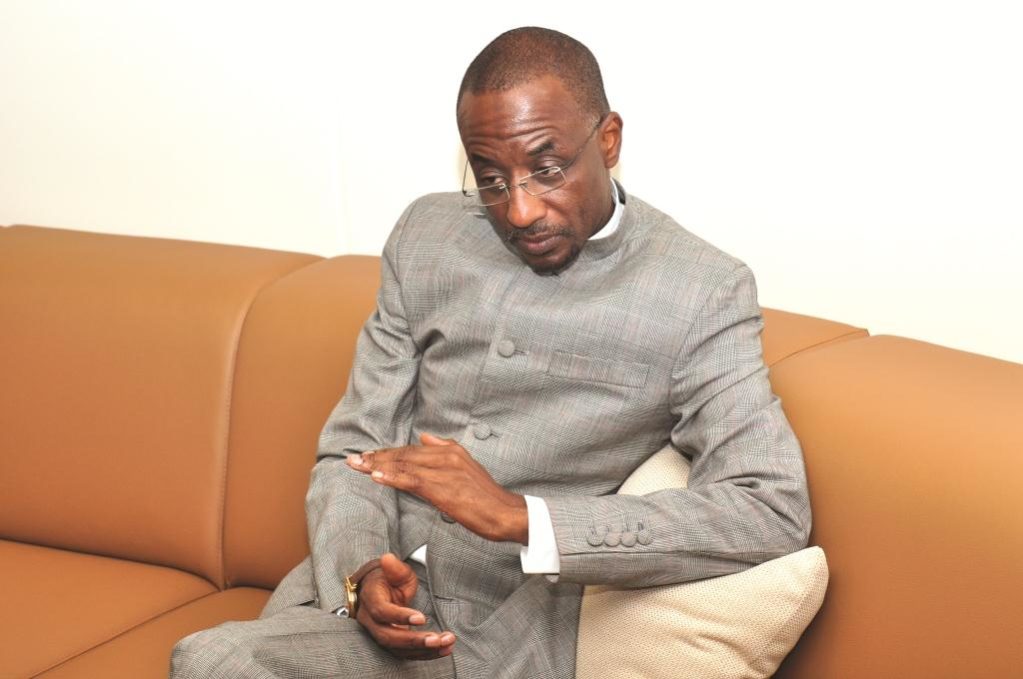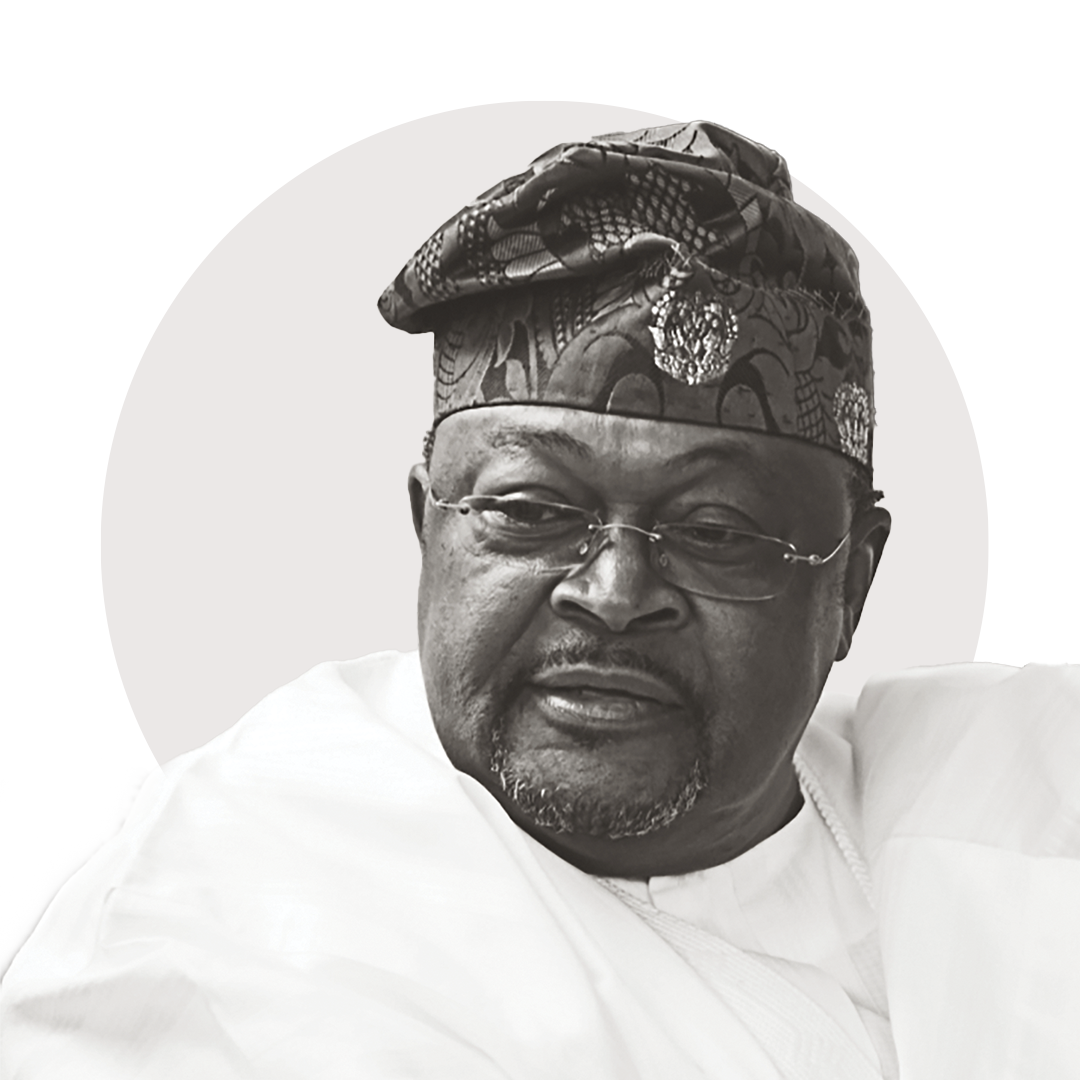Nigeria is heavily dependent on the oil sector as a major revenue source. The Nigerian National Petroleum Corporation (NNPC) has oversight of the country’s petroleum trade and keeps records on domestic crude oil sales and reconciliation statement with the Central Bank of Nigeria (CBN). The NNPC is widely considered as one of the most powerful corporation’s in Nigeria, so when in 2013, one of Nigeria’s most respected central bank governors, Sanusi Lamido Sanusi, told a senate committee that $49 billion was missing from the state coffers, all hell broke loose.
“I had for many years expressed concerns that reserves are not going up but it never really hit me. I always thought there was some explanation of maybe the production sharing contracts were not favorable to Nigeria, the oil company was taking the bulk of the revenue, maybe we had some sort of financing arrangement with the oil companies and the revenues were going towards paying those debts, maybe NNPC had borrowed from banks and the revenue was going towards paying off the banks,” says Sanusi, who now goes by the name of Emir Muhammadu Sanusi after being crowned as the Emir of Kano in 2014.
The shocking revelation will forever haunt Sanusi as his worst day in business. It all began in a quarterly meeting at the CBN.
“We have within the central bank what’s called the Government Consultative Committee and it is made up of all the departmental directors, the deputy governors and the governor. We met once in a quarter to review the economy. At several of these meetings I had complained that I was not at all satisfied that we had understood what was going on with revenues because the numbers were not adding up to me,” says Sanusi.

Loading...
“So the initial report I got was that we had been seeing a huge and increasing gap between the value of crude oil shipped from Nigeria and the amount of money paid in by NNPC. So I said ‘why don’t you go back to just January last year ‘til now and bring out from your records how much crude we exported and how much revenue we got in’. He came back with numbers that showed a difference of $49 billion and I said ‘I don’t believe this’. So I got his deputy governor and other directors to look at the numbers again and they came back with the same number.”
After reconciliation, $29 billion was explained through a production sharing agreement where the money was paid to the state through the Federal Inland Revenue Service (FIRS) account instead of the CBN account. The remaining $20 billion however could not be accounted for. Sanusi had to make the difficult decision either to keep quiet and finish the remainder of his term as governor of the CBN or speak up. He decided to speak up.
“I thought the best thing to do was to write to the president and draw his attention to this and the reason is because, as governor of the central bank, I have the fiduciary responsibility to my customer to let them know if something is going wrong. So I wrote to the president and said to him ‘Mr President, I am concerned that reserves are not going up’ and explained to him what was happening. This was in August 2013; the president received the letter and did nothing. I saw him several times in meetings after that but he said nothing,” says Sanusi.
After being ignored for months, Sanusi’s letter mysteriously ended up in the hands of the former president, Olusegun Obasanjo, who wrote an open letter to the Goodluck Jonathan administration. The media frenzy that ensued resulted in Sanusi being summoned to the president’s office.
“I got a call and he said I should see him at 3PM and when I got there the place had been swept, there was no one apart from the security services, it was as if everybody had been asked to go. He says to me he is calling because he is surprised a letter I wrote to him got to Obasanjo and I said to him I was surprised as well. And he said he is calling me because he thinks I know who gave Obasanjo the letter. I said the letter was in different places, and Obasanjo had been a former president and lived in this villa for eight years and therefore he is more likely to have sources inside this villa than inside the CBN,” says Sanusi.
“He said he is convinced that the letter left the CBN to Obasanjo and I have 24 hours to find out who leaked the letter or sack somebody, and if I didn’t sack them then that was proof that I leaked the letter and that I should resign.”
The exchange was unexpected for Sanusi. The focus was not on the missing $20 billion but rather on who leaked the allegations to the former president. Sanusi redirected the focus of the conversation back to the missing funds and put the blame on the NNPC and the former Minister of Petroleum Resources, Diezani Alison-Madueke. From that moment, he knew he had signed his professional death warrant.
“I knew that taking on the NNPC was taking on the most powerful minister in Jonathan’s government and nobody who had touched Diezani had survived; so it was not a question of what would happen, I just didn’t care at that time. I did not want to go down in history as having seen this and kept quiet. Once I mentioned the minister he got very angry, his countenance changed and he said ‘you know, whether you like it or not, you are going to leave that office, I cannot continue to work with you, either you or I will leave government’.”
The following months were full of threats and allegations of corruption against Sanusi, which led to his eventual suspension by Jonathan on the grounds of financial recklessness and misconduct. His term as the governor of the CBN had come to an end just a couple of months before the end of his official tenure. The authorities seized his passports and made life uncomfortable, according to Sanusi.
“I always said that I didn’t see the role of being Governor of the Central Bank as an end; it was never really an ambition for me. It was a job and, if I wasn’t sacked, my term would end anyway. The only reason I stayed is because I believed if you are called to serve your country, don’t just walk away. You have a five-year term, complete the term and go. So it wasn’t an issue, the real issue for me was to get to the bottom of what had gone wrong,” says Sanusi.
These days, Sanusi still spends his time in service to his country but this time as Emir Sanusi, and the religious leader of the Kano Emirate. The role is a hereditary role and has been in existence for thousands of years, with his particular dynasty ruling Kano for over 200 years. The role has tremendous influence in terms of advice to political authorities and collaboration in the delivery of public services. As he looks back on the events that transpired just a few years ago, his resolve is as strong as ever when asked if he would have done anything differently.
“I am a prince and you need to understand the psychology of princes. The best place for a prince to be is a place where he can be a hero; at that point we had reached a point where I could not lose. If the president brought me down, I would be brought down while defending $20 billion of the Nigerian people’s money and if I brought the president down I am a hero for bringing the president down while defending $20 billion of the Nigerian people’s money, I could not lose. The only way the president was going to win was to sack his petroleum minister and investigate the money.”
Loading...





















